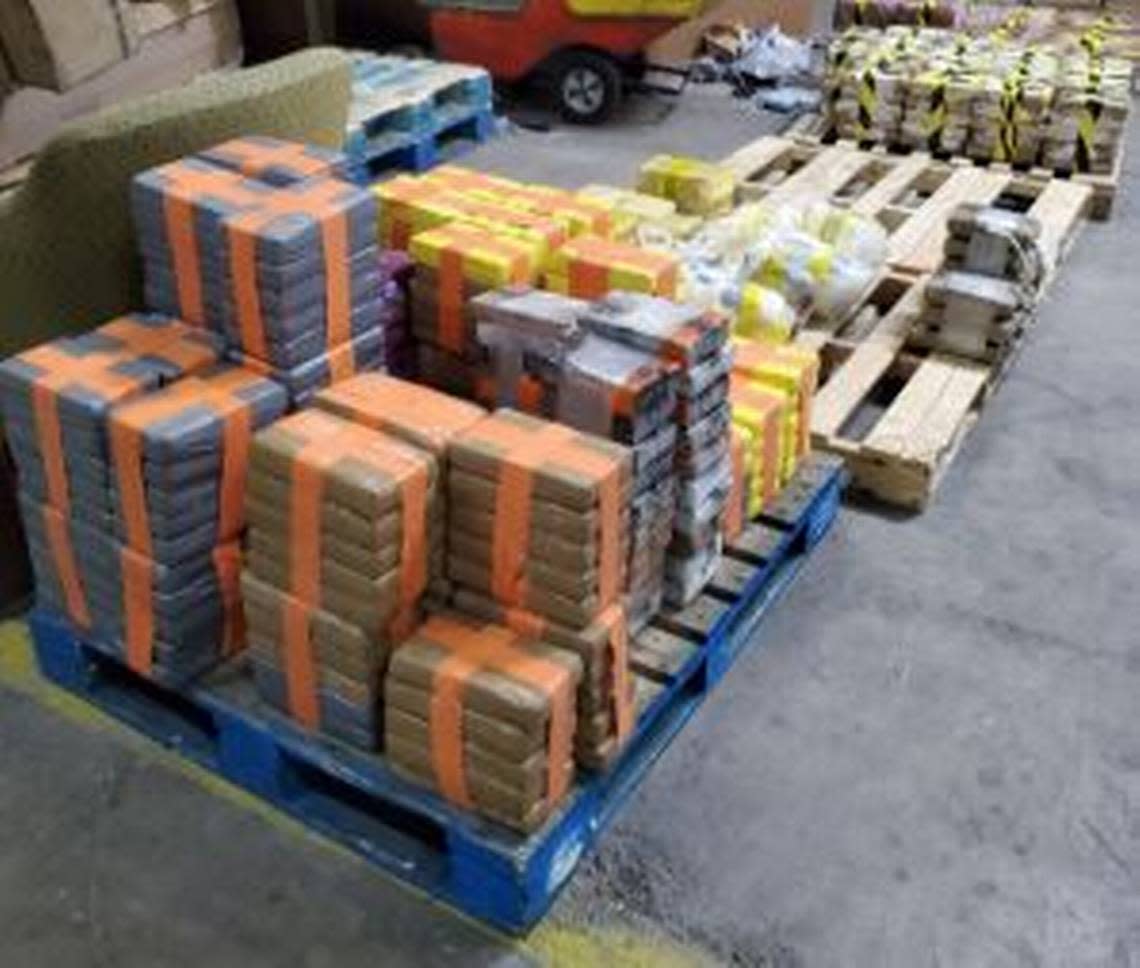Coronavirus upends the drug trade, UN says – but traffickers are adapting. Here’s how

The global drug trade, like most industries, is feeling the impact of the coronavirus pandemic, the United Nations reports. Drug trafficking operations in North America are no exception.
Moving drugs across borders and through ports has gotten much trickier as governments clamp down on travel, and chemicals needed for production are in shorter supply, the UN report said.
And it’s still as dangerous as ever.
In March, Mexico experienced its deadliest month ever recorded, just as authorities began diverting resources and manpower toward COVID-19 and away from combating cartels, The Guardian reported.
Whether their response to the global pandemic is violence, craftiness, or price-gouging, traffickers and dealers are adapting to the times, experts say.
‘They feel more vulnerable’
Border Patrol agents based in El Paso are seeing a decrease in drug seizures, even though smugglers are more exposed than ever.
Overall northbound traffic is down by 60-70 percent, the DEA told El Paso Times, meaning a lot less concealment for anyone trying to sneak something through.
“A lot of cartels hide in the cross-border economic activity,” Kyle Williamson, head of the DEA’s El Paso division, told the outlet.
“They feel more vulnerable.”
Alternative routes
According to the UN, traffickers are looking to find alternative routes or different means of getting their product where it needs to go.
The increased risk of traditional transportation methods will push traffickers more toward the use of drones, unmanned vehicles, and submarines, the Brookings Institute think tank says.
“[Traffickers] already use drones to smuggle drugs into prisons around the world and across the U.S.-Mexico border, to steal drug cargo from their rivals, and to monitor terrain for rivals and police,” the think tank said. Current circumstances will merely “speed up” wider-scale adoption of the technology among such organizations.
Supply shortages, skyrocketing prices
Street prices are rising on virtually all narcotics, including meth, heroin and cocaine, largely due to supply shortages, or in the case of meth, or methamphetamine, a shortage of precursors from countries like China, the UN says.
The price of meth has increased by double, according to the UN, and in some cases by 600%.
However, much like toilet paper and hand sanitizer, some entrepreneurial-minded sellers are simply stockpiling and price-gouging.
“You have shortages but also some greedy bastards who see an opportunity to make more money,” Jack Riley, the former deputy administrator of the DEA told ABC News. “The bad guys frequently use situations that affect the national conscience to raise prices.”
Long-term consequences
There could be long-term consequences from the pandemic that ultimately benefit the drug trade, the UN warns.
Economic downturn, already evident in the U.S. and elsewhere, may push more people to use illicit drugs. Or to get involved with trafficking organizations themselves to make money.
“The economic downturn caused by the COVID-19 crisis could lead to a lasting transformation of drug consumption patterns, as the economic consequences caused by COVID-19 may lead to increased poverty and decreased economic opportunities for already vulnerable populations,” the UN report said.
“The increased involvement of dependent drug users in criminal activities to pay for their drug habit may also be a consequence, unless sufficient treatment can be provided to such groups.”

